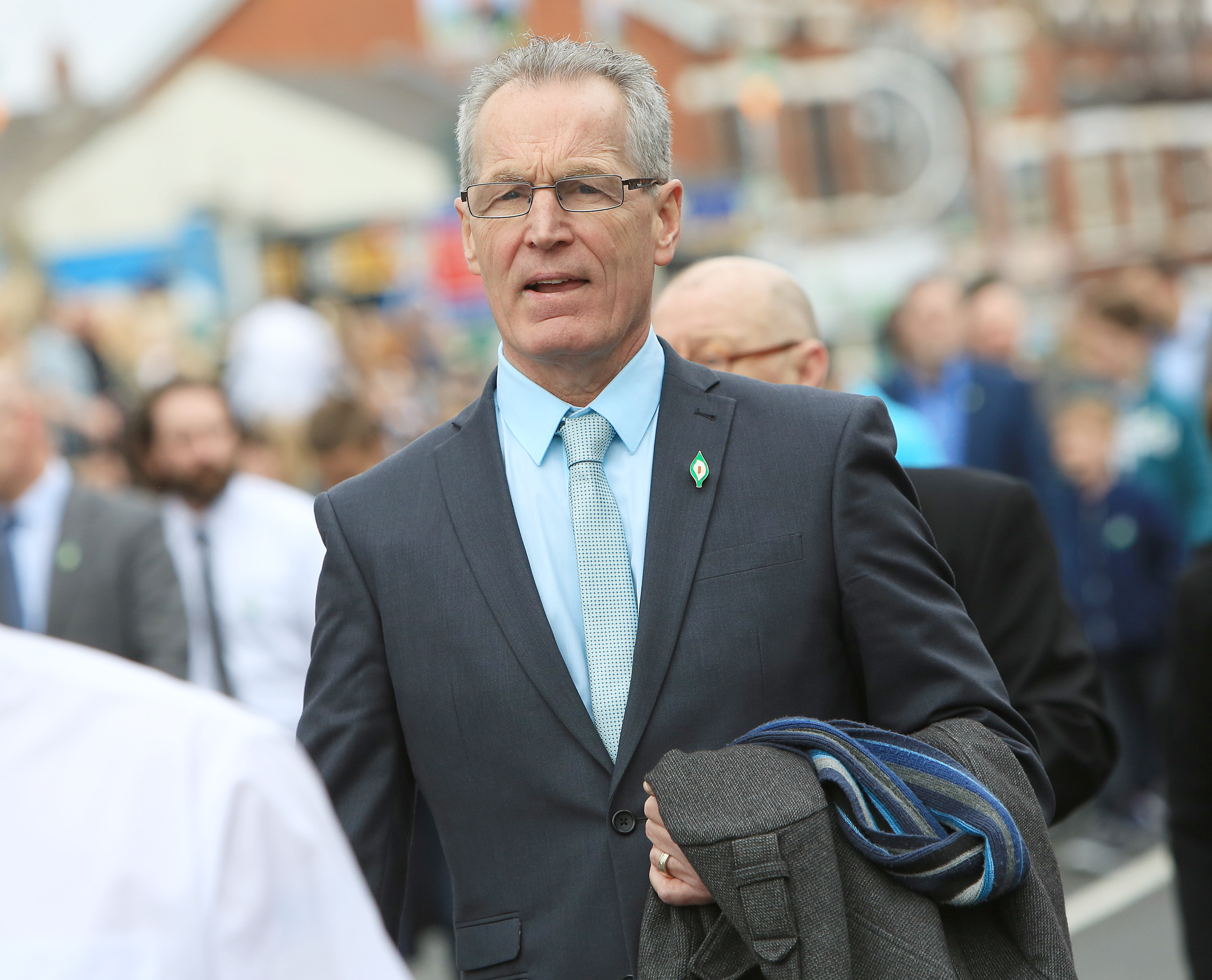The largest Easter Rising parade in Belfast has been told dissident republicans have "no right" to continue their campaigns.
Addressing several thousand people attending the National Graves Association commemoration in Milltown Cemetery, West Belfast, yesterday, Sinn Féin MLA Gerry Kelly rejected any comparison between the groups and the IRA.
"There are small groupings within the Nationalist community opposed to the peace process and opposed to Sinn Féin," he told a rally which followed the main republican parade along the Falls Road. "These groups have every right to disagree with our strategy but they have no right to carry out armed actions, the vast majority of which are directed against unarmed civilians, in the name of Irish Republicanism. These small groups are not the IRA. The IRA fought a war against State combatant forces and fought it to a conclusion."
The Sinn Féin man described his former IRA comrades as "proud Republican Volunteers who took up arms against a massive military machine when there was no other option."
He added: "Today as a result of the efforts of these republicans there is a peaceful and democratic path to a united Ireland. I can’t be sure what my friends and comrades who gave their lives in the latest phase of our long struggle might say. But, I do know, that those who survived them took up their mantle. Our duty, our commitment to them, is to do the best we can in the times we live in now."
Now the Sinn Féin candidate in the forthcoming Westminster election in North Belfast, Gerry Kelly was among the best-known IRA members of his era. He was arrested in London after a bomb attack at the Tower of London in 1973 and subsequently sentenced to life in prison. He was transferred from England to Long Kesh prison after going on hunger strike and later led the 1983 mass escape of IRA prisoners from the H-Blocks. Arrested in Amsterdam in 1986 on a gun-running mission, he was extradited back into British custody only after the London authorities agreed to issue him with a pardon for what the Dutch courts ruled were the politically-motivated London attacks. Involved in secret talks with the British Government in the early 1990s, he was elected to the Northern Ireland Assembly in 1998.
Dissident groups "are not the IRA"

Gerry Kelly




